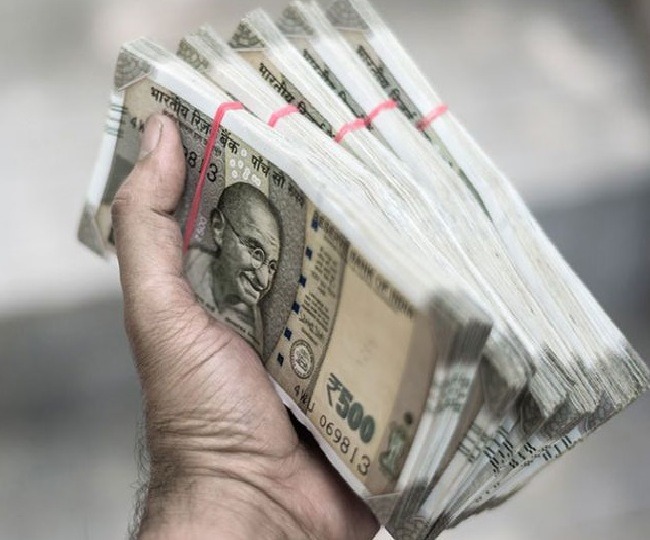It's Time to open schools In J&K
It's Time to open schools In J&K
If there are no restrictions on restaurants, shopping malls and other public places, why only a classroom is treated as main driver of COVID-19 transmission.
The prolonged closure of educational institutions has become a hot debate these days as people are of diverse opinions over reopening of the educational institutions amid the prevailing situation.
Some opine that extended closure of educational institutions is for the safety of the students while others opine that keeping students aloof from physical classrooms takes a toll on their academics.
The fact is that UNESCO has estimated that keeping students away from schools every month results in a learning loss of two months.
That means the closure of schools for around 17 months during COVID-19 period took the school children back by 34 months.
The educational institutions across J&K were closed in August 2019 after Article 370 was abrogated from Constitution India.
The closure of educational institutions gave a dent and cost dearly for the students from school to University level.
Though the government, after two months, started reopening of educational institutions in a phased manner, as a routine the school education department announced over two month long winter vacation for all schools.
As per routine the schools reopened in March 2020 but after having physical class work of students for around three weeks, the educational institutions were closed across India due to nationwide lockdown which was imposed in view of the outbreak of COVID-19 pandemic.
Since then the students are literally away from their schools and books as well.
In J&K, the government as well as the private schools took various initiatives to compensate for the academic losses of the students. One of the major initiatives was to engage the students with online classes.
Now it has been around 17 months when the students are away from normal schooling and the government on the other hand has opened every sector for public but it is only the educational institutions which continue to remain closed.
While the other states outside J&K are opening the educational institutions for normal schooling but the J&K government seems to be
Seventeen months into the COVID-19 pandemic, one cannot deny or ignore the damage which has been caused due to the prolonged closure of schools.
Many researches and studies have been done on the impact on the student learning due to the closure of the educational institutions.
In J&K, the education department shifted to online mode for the benefit of the students but the government of India recently revealed that 70 percent school children in J&K don’t have access to digital devices to avail the online mode of education.
When we say that 70 percent students in J&K do not have access to digital devices it hints that these children don’t have smart phones, laptops to avail online education facilities.
Given these figures, shifting to online mode of education in J&K seems a futile exercise.
Having said this, we cannot however negate the efforts of the government to keep students engaged with their studies through different means.
In view of the digital divide, the government has started delivering community classes for the students.
But the classes are supposed to be open air classes within the premises or outside the schools, depending on the availability of open space.
If we talk of the city schools, more than 50 percent of schools are operational in rented buildings sans every basic facility not to talk of a proper playground or open space where the students can take open air classes.
Besides facing academic losses, we cannot also negate the impact of prolonged closure of schools on the emotional and mental health of children.
Doctors have been raising their voices while some researchers have also come up with their theses which establish that the children who are confined to their homes are facing challenges within the family and have also become prone to depression.
UNICEF and UNESCO in a joint report have also advocated for reopening of schools saying that the closure of educational institutions for 18 months disrupted the education of millions of children. They said the practice should not go on and schools should be the last to close and the first to reopen.
Maintaining that the respective governments closed the schools when the situation did not demand it, the UNICEF and UNISCO in a statement said these actions were frequently taken as a first recourse rather than a last measure.
It is also a fact that the schools continue to remain closed while bars and restaurants besides other public places like shopping malls, restaurants and tourist spots are open.
The losses that children will incur for not being in school may never be compensated and the J&K government should not wait for the number of cases to go to zero.
Various researches have proved that children are less susceptible to COVID-19 and on the other hand majority of the teachers in J&K are vaccinated as well.
It cannot be also justified to say that COVID-19 can be transmitted only through educational institutions while the other public places are open and people rarely follow any COVID-19 SoPs.
But ironically, the government has disallowed the normal schooling of children who otherwise become part of every social gathering.
While the educational institutions continue to remain closed in J&K for physical class work, the states like Tamil Nadu, Karnataka, Uttar Pradesh have decided to reopen the schools in a phased manner for normal class work of students.
The Tamil Nadu government has proposed to reopen schools for physical class work for 9th to 12th from September 1 with 50 percent attendance while the Karnataka government has decided to reopen schools for students from Class 9 to 12 (II PUC) from August 23.
The government in Uttar Pradesh has also decided for reopening of schools wherein students from class 6th to 8th will be able to physically attend classes from August 23, while schools for classes 1 to 5 will reopen from September 1.
The J&K government should also consider the impact of the prolonged closure of the schools and should start reopening of educational institutions in a phased manner.
Let the students resume their normal schooling which will be beneficial for them academically and emotionally as well.
Hope the J&K government will consider resumption of physical class work for students.
If there are no bindings on restaurants, jam-packed shopping malls and other public places to remain functional, why is only a classroom treated as the main driver of COVID-19 transmission.
Government should ponder upon it and come up with the decision accordingly.






